I was at the New Day group home for roughly a year and a half. The group home isn't perfect. But none of us are. I see many negative reviews on here, but it seems to me the parents don't understand what they are sending their kid to. It's a ranch. There are bugs. There are h ...
About New Day Ranch
New Day Ranch is located in Billings, Montana only 15 minutes away from downtown Billings. While you’ll be close to all the amenities of the city, this facility is nestled in nature among rolling hills, plains, grasslands and wooded areas.
It is a peaceful vibe which is ideal for therapy and recovery programs. They specialize in serving troubled teens with mental health problems and substance abuse but also have programs for adults.
Youth Recovery in Billings
Therapeutic group homes, day treatment programs, foster care and life skills and transition planning are just a few of the youth programs offered at the New Day Ranch. Family involvement and support are crucial for the process which is why the staff will help families rebuild trust and improve communication.
With the life skills training you can learn job readiness, vocational skills, financial literacy, housing support and career planning,
Animal Assisted Therapy (AAT)
New Day Ranch focuses on AAT being part of your recovery. They mainly use horses in their equine-assisted therapy which helps clients with traumatic histories while building trust and confidence.
Sessions are facilitated by equine specialists and licensed therapists. Horses are great in nonverbal communication, trust boundaries and immediate feedback. Evidence shows these sessions help with emotional regulation, self-esteem, confidence and stress reduction.
Adult Programs for Addiction Recovery
While this particular location is focused on youth programs, the organization can connect you to their adult services that are located in their Billings offices. Adult intensive outpatient programs are designed to help patients who need structured care while living at home. While you get treatment, they’ll assign you a case manager that works with you to help with housing assistance, employment services, medical care and legal support when needed.
Latest Reviews
Rehab Score
Gallery
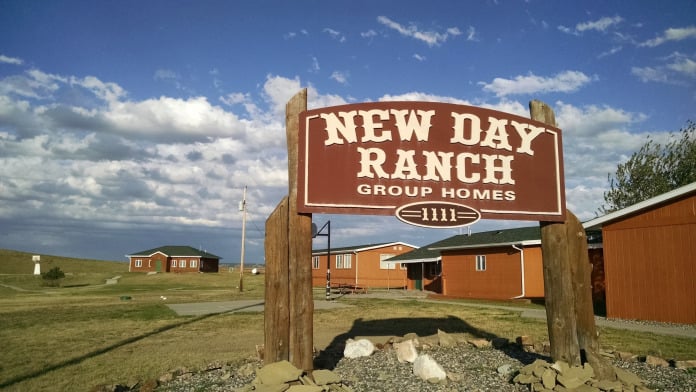

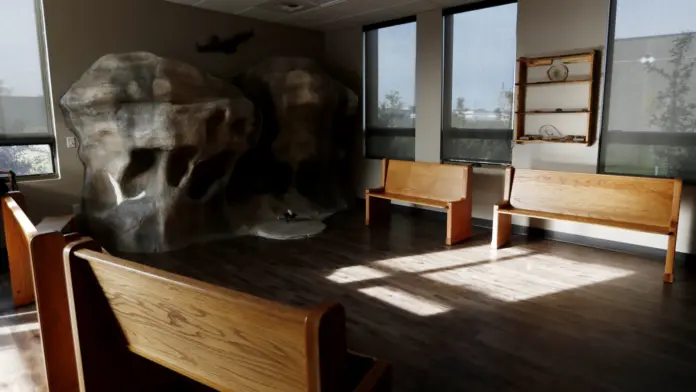
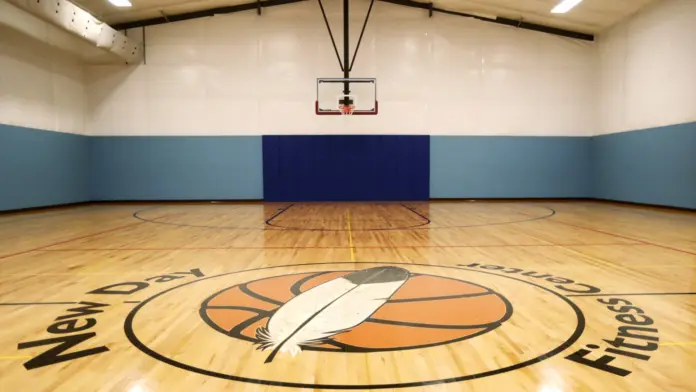
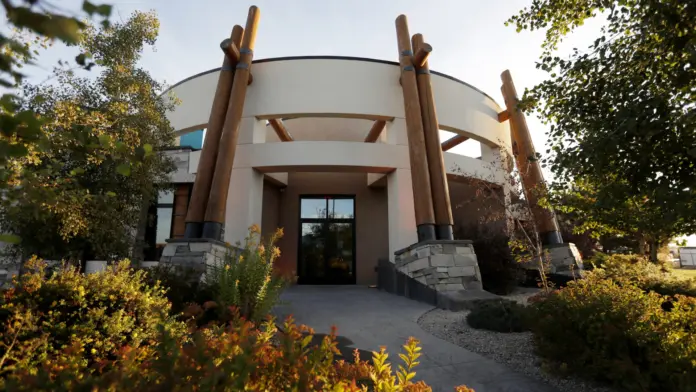
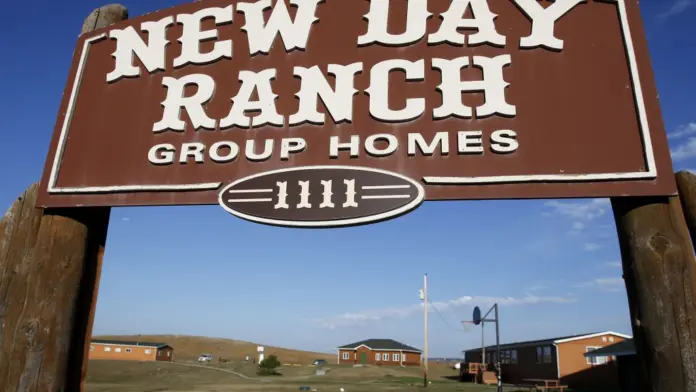
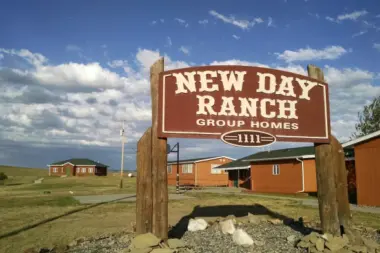

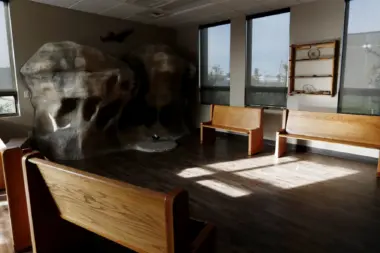
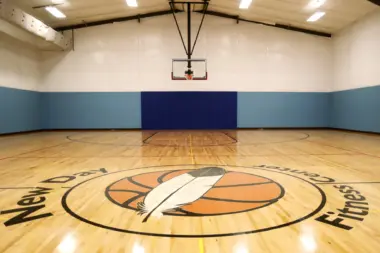
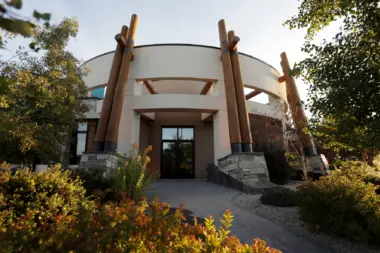
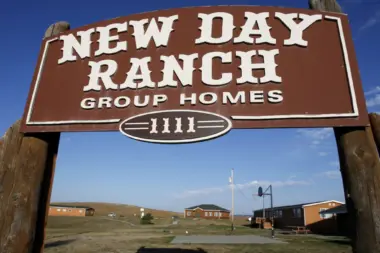
Accepted Insurance
Other Forms of Payment
Private insurance refers to any kind of healthcare coverage that isn't from the state or federal government. This includes individual and family plans offered by an employer or purchased from the Insurance Marketplace. Every plan will have different requirements and out of pocket costs so be sure to get the full details before you start treatment.
Self-pay involves paying for treatment out of your own pocket. You can use savings or credit, get a personal loan, or receive help from family and friends to fund your treatment. If you don't have insurance or your insurance plan doesn't cover a specific program, self-pay can help ensure you still get the care you need.
Financial aid can take many forms. Centers may have grants or scholarships available to clients who meet eligibility requirements. Programs that receive SAMHSA grants may have financial aid available for those who need treatment as well. Grants and scholarships can help you pai for treatment without having to repay.
Sliding scale payments are based on a client's income and family size. The goal is to make treatment affordable to everyone. By taking these factors into account, addiction recovery care providers help ensure that your treatment does not become a financial burden to you or your family, eliminating one barrier to care.
Military members, veterans, and eligible dependents have access to specific insurance programs that help them get the care they need. TRICARE and VA insurance can help you access low cost or no cost addiction and mental health treatment. Programs that accept military insurance often have targeted treatment focused on the unique challenges military members, veterans, and their families face.
Medicaid is a state based program that helps lower-income individuals and families pay for healthcare. Medicaid covers addiction treatment so those enrolled can use their coverage to pay for rehab. When a program accepts Medicaid the client often pays very little or nothing out of their own pocket.
Private insurance refers to any kind of healthcare coverage that isn't from the state or federal government. This includes individual and family plans offered by an employer or purchased from the Insurance Marketplace. Every plan will have different requirements and out of pocket costs so be sure to get the full details before you start treatment.
Addiction Treatments
Levels of Care
Outpatient Programs (OP) are for those seeking mental rehab or drug rehab, but who also stay at home every night. The main difference between outpatient treatment (OP) and intensive outpatient treatment (IOP) lies in the amount of hours the patient spends at the facility. Most of the time an outpatient program is designed for someone who has completed an inpatient stay and is looking to continue their growth in recovery. Outpatient is not meant to be the starting point, it is commonly referred to as aftercare.
Clients undergoing treatment at an inpatient rehab receive intensive supervision and hands-on care. They reside at the treatment facility for the duration of the program, which may exceed 18 months in long-term residential programs. Rigorous addiction counseling, including family and group therapy, is often the primary treatment modality. Many programs also offer a range of evidence-based holistic therapies, including yoga, music therapy, meditation, and experiential therapy. Most programs promote clients' long-term sobriety through recovery-focused life skills training.
Often serving as the first step in the addiction recovery process, medically supervised detox involves weaning your body off addictive substances while in the safety of a medically supervised environment. If you are dependent on substances like alcohol, opioids, or benzodiazepines, the associated withdrawal symptoms can not only be uncomfortable, they can be extremely dangerous. In medically supervised detox, a team of medical professionals can monitor your health, vital signs, and progression to ensure your maximum safety and comfort.
Treatments
Many of those suffering from addiction also suffer from mental or emotional illnesses like schizophrenia, bipolar disorder, depression, or anxiety disorders. Rehab and other substance abuse facilities treating those with a dual diagnosis or co-occurring disorder administer psychiatric treatment to address the person's mental health issue in addition to drug and alcohol rehabilitation.
Mental health rehabs focus on helping individuals recover from mental illnesses like bipolar disorder, clinical depression, anxiety disorders, schizophrenia, and more. Mental health professionals at these facilities are trained to understand and treat mental health issues, both in individual and group settings.
Alcohol addiction (also called alcoholism or alcohol use disorder) is defined as a chronic disorder involving compulsive drinking of alcohol. Many treatment options are available for this addiction, based on frequency of consumption and severity of alcohol abuse. Most alcohol rehab in Montana involves detoxification, psychotherapy, and social supports. Family involvement is often encouraged, and ongoing support after rehab is essential.
A comprehensive drug rehab in Montana treats the entire person. Treatment methods address all the underlying causes of addiction and give the individual the tools they need to live a healthy, drug-free life.
Addiction treatment programs In Montana provide comprehensive rehab for individuals struggling with substance abuse. Levels of care can include residential rehab, detox, and intensive outpatient programs. Substance abuse treatments include interventions like cognitive behavioral therapy, or dialectical behavioral therapy, educational groups, skills training, and family counseling. The benefits of substance abuse treatment are improved health and increased odds of long-term sobriety.
Programs
Adult rehab programs include therapies tailored to each client's specific needs, goals, and recovery progress. They are tailored to the specific challenges adult clients may face, including family and work pressures and commitments. From inpatient and residential treatment to various levels of outpatient services, there are many options available. Some facilities also help adults work through co-occurring conditions, like anxiety, that can accompany addiction.
Young adulthood can be an exciting, yet difficult, time of transition. Individuals in their late teens to mid-20s face unique stressors related to school, jobs, families, and social circles, which can lead to a rise in substance use. Rehab centers with dedicated young adult programs will include activities and amenities that cater to this age group, with an emphasis on specialized counseling, peer socialization, and ongoing aftercare.
Recovery is most successful when clients feel accepted and validated by their peers and treatment providers. Facilities that offer LGBTQ-inclusive programming are committed to creating a safe space where everyone can grow and recover without fear of judgment or discrimination. They will have dedicated policies in place to create a safe and supportive environment that fosters free expression.
Serving in the military is both mentally and physically challenging, and can result in trauma that persists even after combat ends. Military programs are tailored to the specific and often complex needs of active duty personnel, veterans, and military families. Clients often access these programs through the U.S. Department of Veterans Affairs (VA).
Teen programs are designed to address the unique pressures teens face, pressures that can drive them to experiment with dangerous, addictive substances. They need programs that meet them exactly where they are and give them tools for long-term recovery. Therapy can help teenagers understand and work through underlying issues so they can reclaim the life ahead of them.
Clinical Services
During cognitive behavioral therapy in Montana, patients learn to be their own therapists. They develop coping skills so they can change their thinking and behavior in day to day life. This helps them overcome mental and substance use disorders.
Your rehab program in Montana may include dialectical behavior therapy (DBT). This method helps you understand your feelings, accept them, and learn to manage them. With the skills you develop, you'll be able to make positive changes. Sessions include both individual and group settings.
Group therapy is any therapeutic work that happens in a group (not one-on-one). There are a number of different group therapy modalities, including support groups, experiential therapy, psycho-education, and more. Group therapy involves treatment as well as processing interaction between group members.
In individual therapy, a patient meets one-on-one with a trained psychologist or counselor. Therapy is a pivotal part of effective substance abuse treatment, as it often covers root causes of addiction, including challenges faced by the patient in their social, family, and work/school life.
The role of the counselor who applies motivational interviewing is to listen and reflect rather than offer advice or warnings. By expressing the client's own thoughts back to them, the therapist allows the client to reflect on their motivations and come to their own conclusions about their need for change.
Trauma therapy addresses traumatic incidents from a client's past that are likely affecting their present-day experience. Trauma is often one of the primary triggers and potential causes of addiction, and can stem from child sexual abuse, domestic violence, having a parent with a mental illness, losing one or both parents at a young age, teenage or adult sexual assault, or any number of other factors. The purpose of trauma therapy is to allow a patient to process trauma and move through and past it, with the help of trained and compassionate mental health professionals.
Whether a marriage or other committed relationship, an intimate partnership is one of the most important aspects of a person's life. Drug and alcohol addiction affects both members of a couple in deep and meaningful ways, as does rehab and recovery. Couples therapy and other couples-focused treatment programs are significant parts of exploring triggers of addiction, as well as learning how to build healthy patterns to support ongoing sobriety.
Research clearly demonstrates that recovery is far more successful and sustainable when loved ones like family members participate in rehab and substance abuse treatment. Genetic factors may be at play when it comes to drug and alcohol addiction, as well as mental health issues. Family dynamics often play a critical role in addiction triggers, and if properly educated, family members can be a strong source of support when it comes to rehabilitation.
Typically, addiction leads to poor dietary choices, which leads to nutrient deficiencies. You don't get the vitamins and minerals you need for daily functioning, which can make recovery even harder. Nutrition therapy addresses these issues and gives you the dietary support you need to get on the right track for recovery.
During addiction treatment, recreational therapy gives you a structured approach using activities like creative writing, hiking, outdoor adventures, and team sports. The activities improve your physical health and provide you with an emotional outlet to express your feelings and reduce your stress level. These are crucial components to maintaining a sober lifestyle.
Experiential therapy is a form of therapy in which clients are encouraged to surface and work through subconscious issues by engaging in real-time experiences. Experiential therapy departs from traditional talk therapy by involving the body, and having clients engage in activities, movements, and physical and emotional expression. This can involve role-play or using props (which can include other people). Experiential therapy can help people process trauma, memories, and emotion quickly, deeply, and in a lasting fashion, leading to substantial and impactful healing.
Amenities
-
Residential Setting
-
Private Rooms
Staff & Accreditations
Staff
Austin Anderson
Director of Residential Services
Lesli Asay
Interim CEO
Anna Clayton
Director of Quality Assurance
Katie Domako
Assistant Director of Outreach
Michael Kennedy
VP of Finance
Rebecca Mallott
VP of Operations
Londa Simpson
Clinical Director of Youth Services
Accreditations

State Licenses are permits issued by government agencies that allow rehab organizations to conduct business legally within a certain geographical area. Typically, the kind of program a rehab facility offers, along with its physical location, determines which licenses are required to operate legally.
State License: Montana
Contact Information
1111 Coburn Road
Billings, MT 59101




